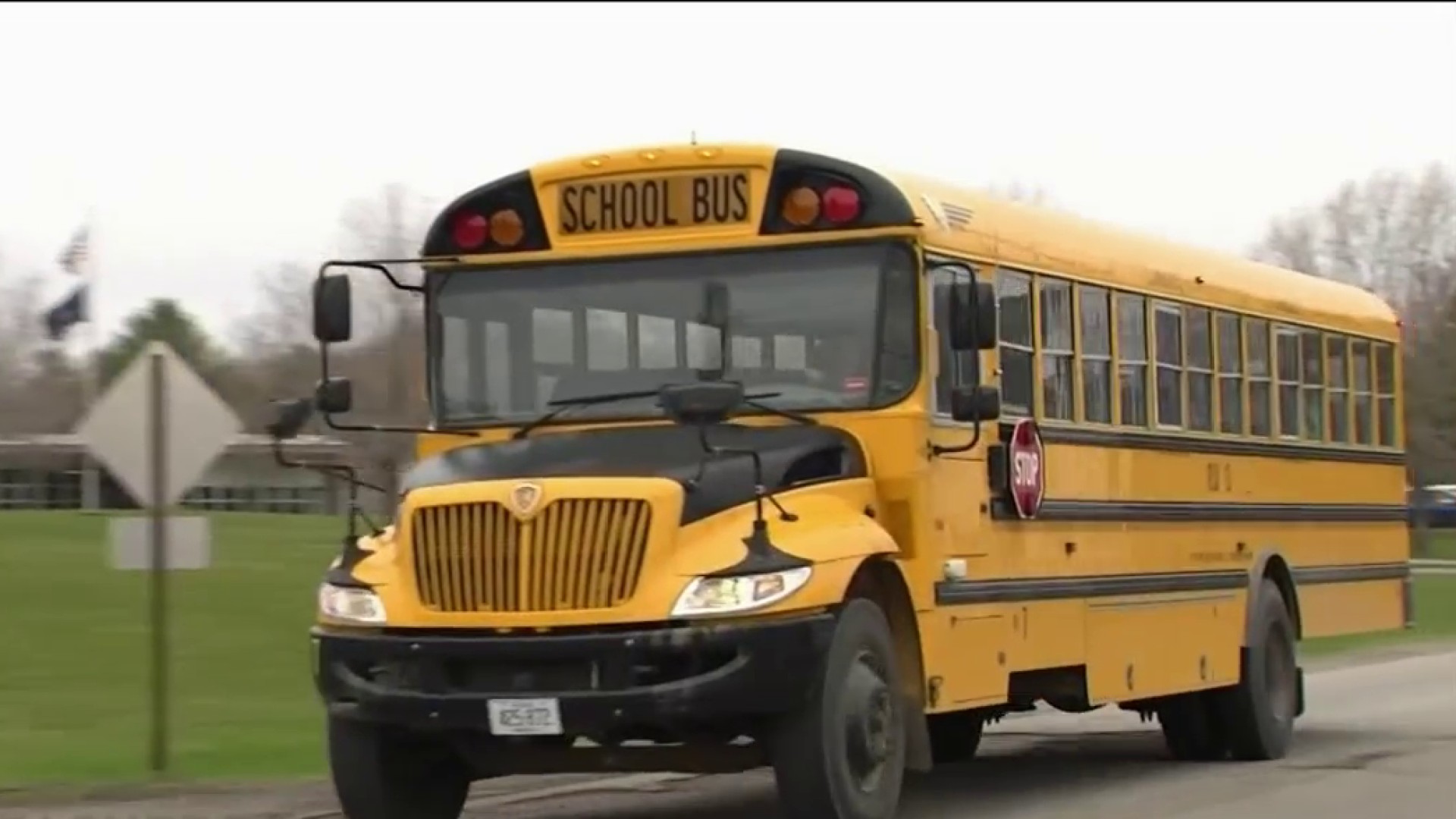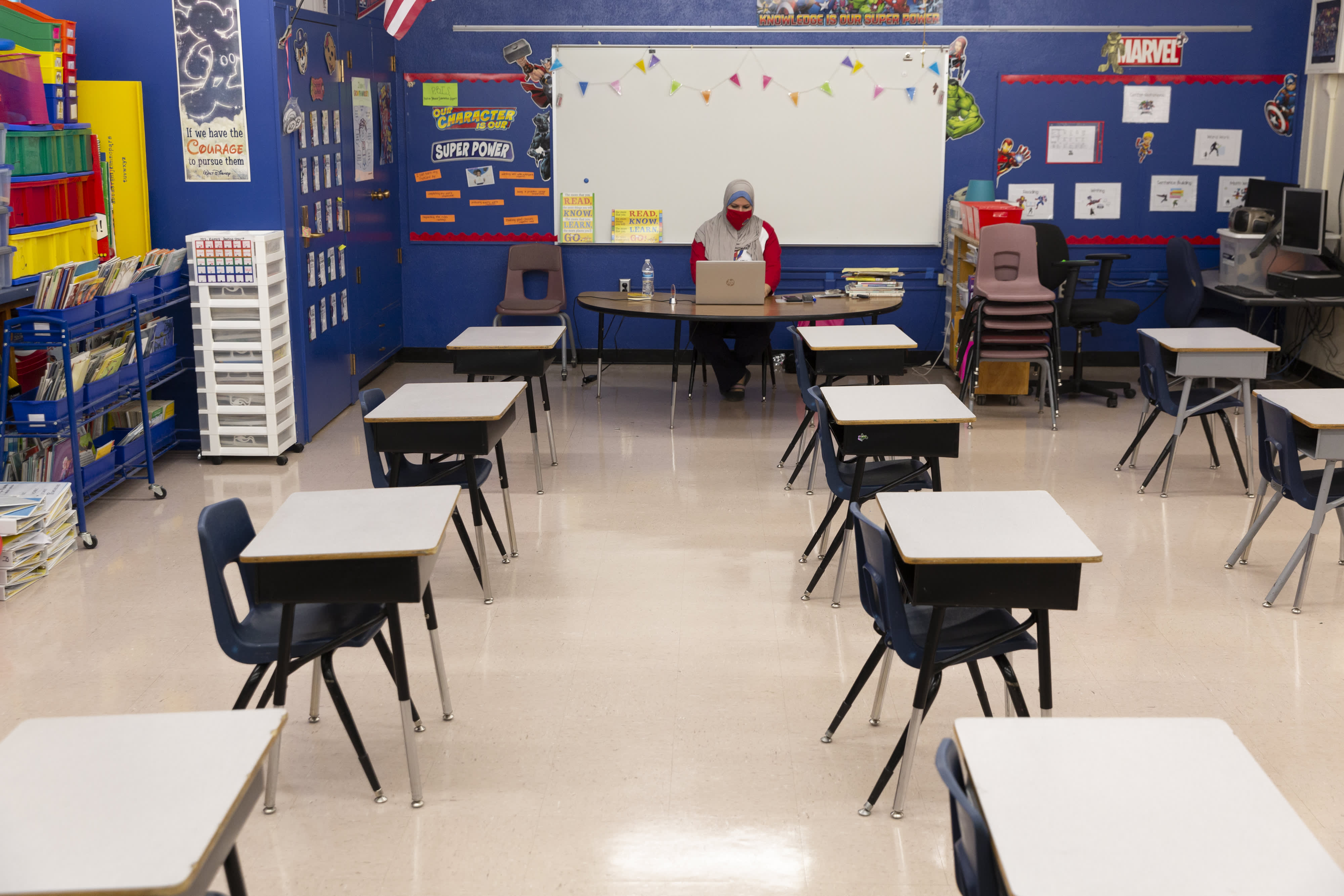The Massachusetts Board of Elementary and Secondary Education voted Friday to approve emergency regulations granting the state education commissioner authority to determine when hybrid and remote models may no longer count towards required student learning time hours.
The move effectively allows Elementary and Secondary Education Commissioner Jeffrey Riley to require in-person learning. The vote was 8-3 in favor of the motion after a more-than-two-hour meeting.
WATCH ANYTIME FOR FREE
>Stream NBC10 Boston news for free, 24/7, wherever you are. |
Board members heard from health experts and Riley before they cast their votes Friday afternoon.
Get updates on what's happening in Boston to your inbox. Sign up for our >News Headlines newsletter.
"The time has come to think about bringing our students back to school," Riley told the board on Friday. "The numbers are just getting better... The rates are going down and the vaccine rollout is going up. Those are good numbers for us to begin to think about what does returning our kids more robustly into schools look like."
Riley has previously said the remote option will be available through the end of this school year, but perhaps not beyond then.
Under the proposed regulations, if Riley were to conclude, after consulting with state health officials and medical experts, that students may safely attend classes in an in-person setting then, "after providing written notice to the Board, I may notify districts that they may no longer use hybrid or remote learning models to meet the minimum school year and structured learning time requirements set forth in the regulations," according to the memo.
"I really believe, and I realize this is unpopular to say, but that we have failed a generation of students in the commonwealth and in our country," said state school board member Paymon Rouhanifard.
Details on the plan will be released next week, but districts will be able to request a waiver and parents will be able to keep their kids home. But if they change their mind, it may take a few days to get the child into class.
Gov. Charlie Baker applauded the vote, saying data has demonstrated that learning in class can be safe.
"We are grateful for the Board's support and look forward to getting all students back to in person learning soon," Baker said in a statement.
Several medical professionals told the board children are struggling with at-home learning, and families are suffering.
"Right now we are seeing, for children, all-time highs for depression, OCD, suicidality, domestic violence, substance abuse in both children and their parents," child psychologists Dr. Kate Nyquist said.
"We need to be patient with young people that they are going to experience a range of emotions in their transition back," said Dr. Nadia Ward. "It will not be easy for them."
Ward is a professor at Clark University and a psychologist focused on adolescents and young adults. She is also the director of the Mosakowski Institute for Public Enterprise, an entity that focuses on behavioral health needs of adolescents and young adults, particular those of color.
"We are seeing unprecedented increases in anxiety and depression," said Ward. "A lot of young people feeling socially isolated and cut off from their peers, they're missing important developmental milestones in their lives."
Dr. Jonathan Davis, vice-chair of pediatrics at the Floating Hospital for Children at Tufts Medical Center, noted that Tufts has studied COVID test results in Medford and found that schools are safer than the community.
But teachers unions were among the groups in opposition.
"Allow our elected and appointed leaders to continue doing their jobs. More state control is not the solution," teacher Teresa English said.
Arlington is one of a dozen school districts whose superintendent signed onto a letter urging the Department of Elementary and Secondary Education to work with school districts to come up with a more concrete plan for a return to school, including scheduling vaccinations for school staff.
The superintendents said they lack guidance from the state on the 3 feet versus 6 feet rules for unmasked activities like lunch, special education, and possible conflicts with union bargaining agreements.
It's been a long year for Michelle Roy and her two kids in the Wachusett Regional School District.
"They have been at home doing virtual online preschool," said the Sterling mom. "It has been a challenge trying to have two kids, ages 3 and 4, on laptops at different times, making sure I have the right kid in the right class, with the right teacher, and then, of course, the attention span of steering at just a computer screen."
Also Friday, the MCAS testing schedule was pushing back for students in grades three through eight.



